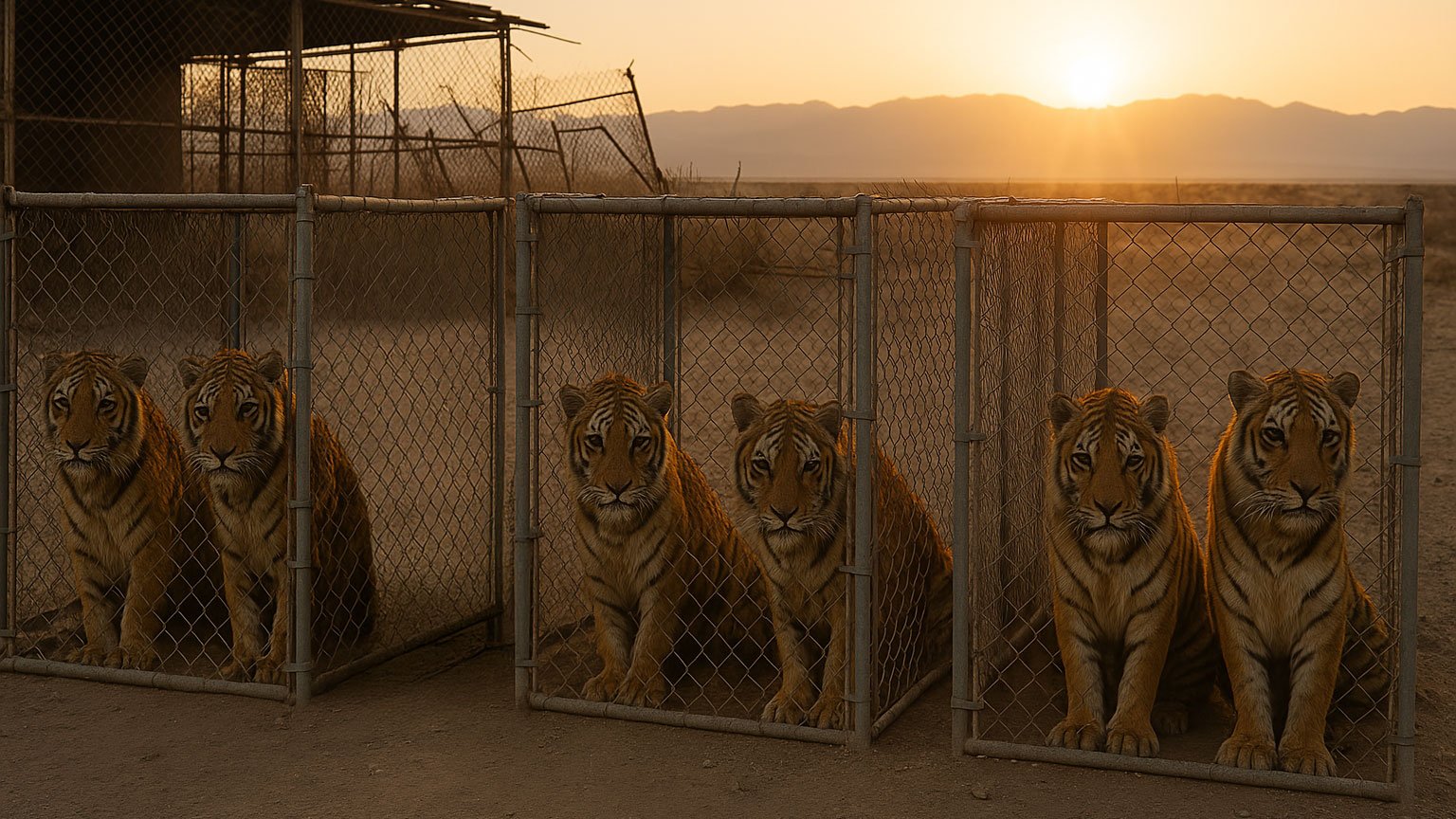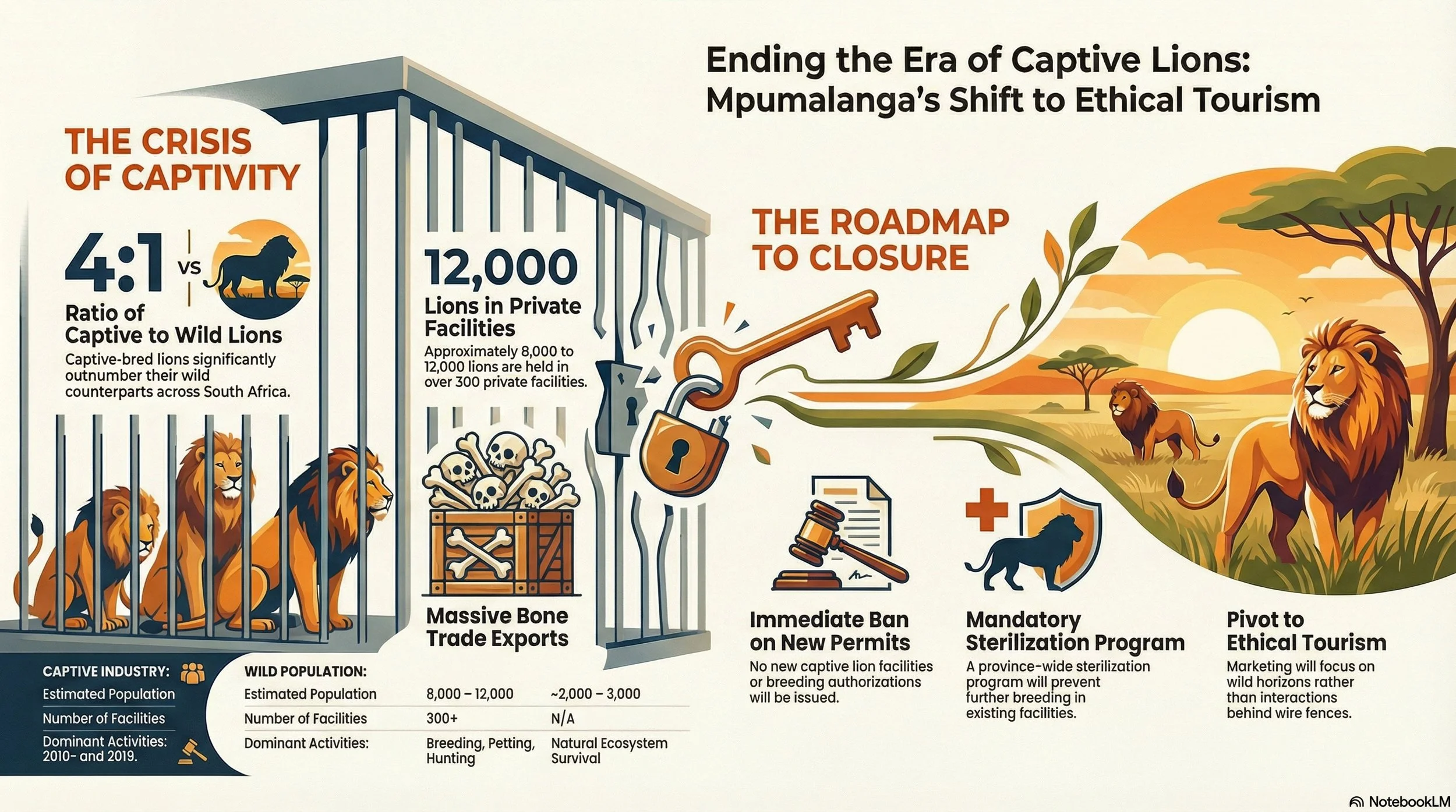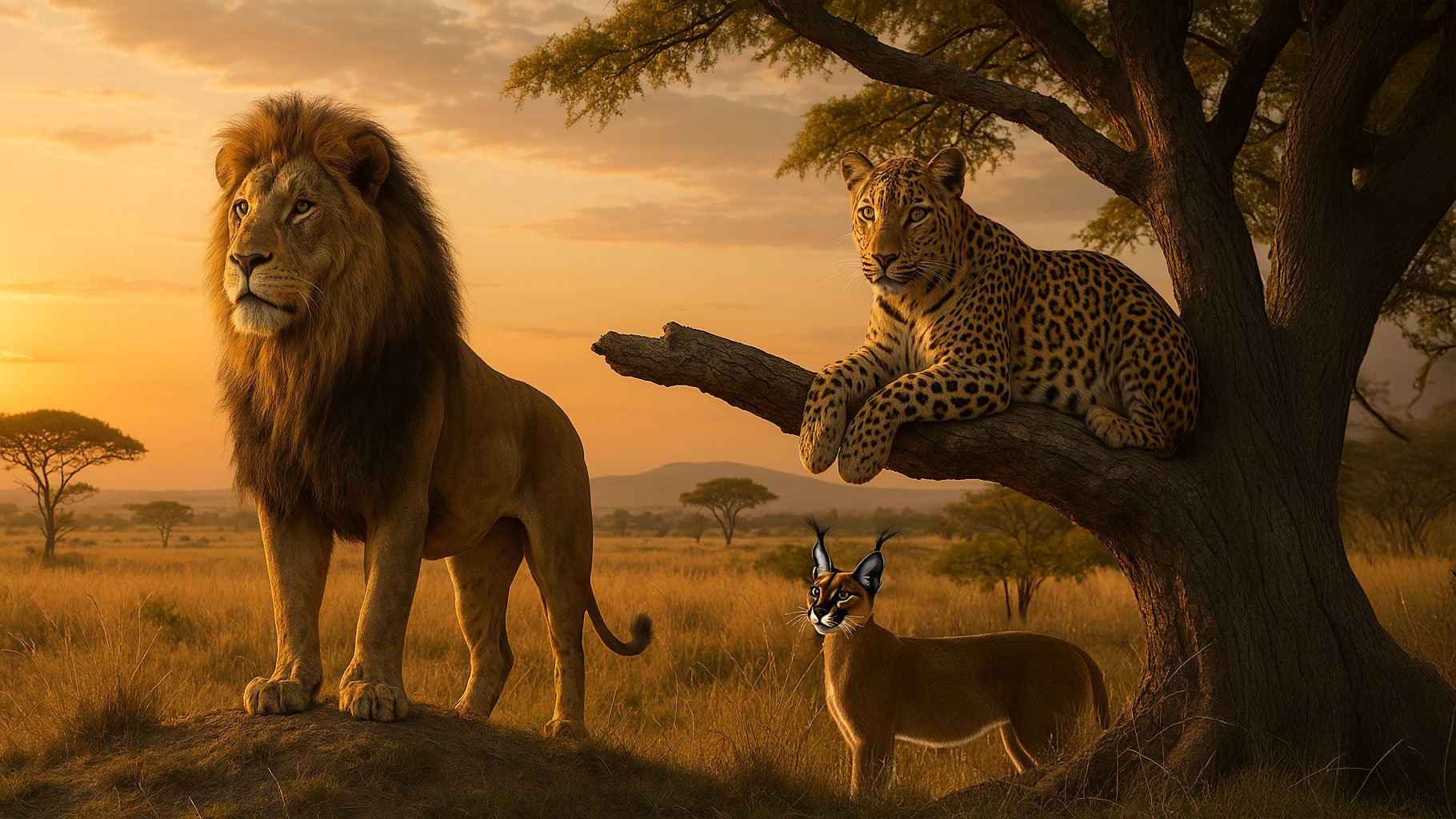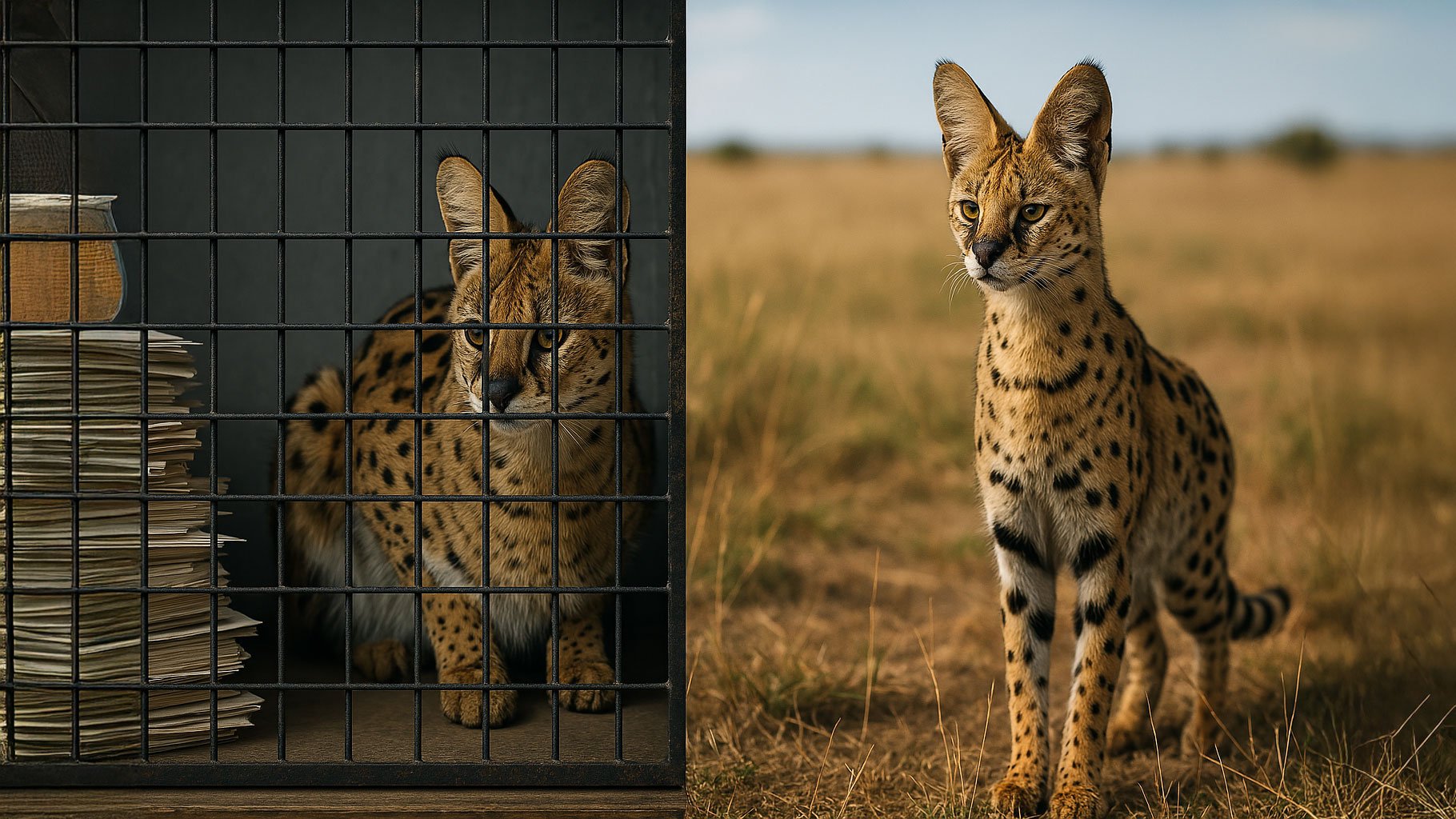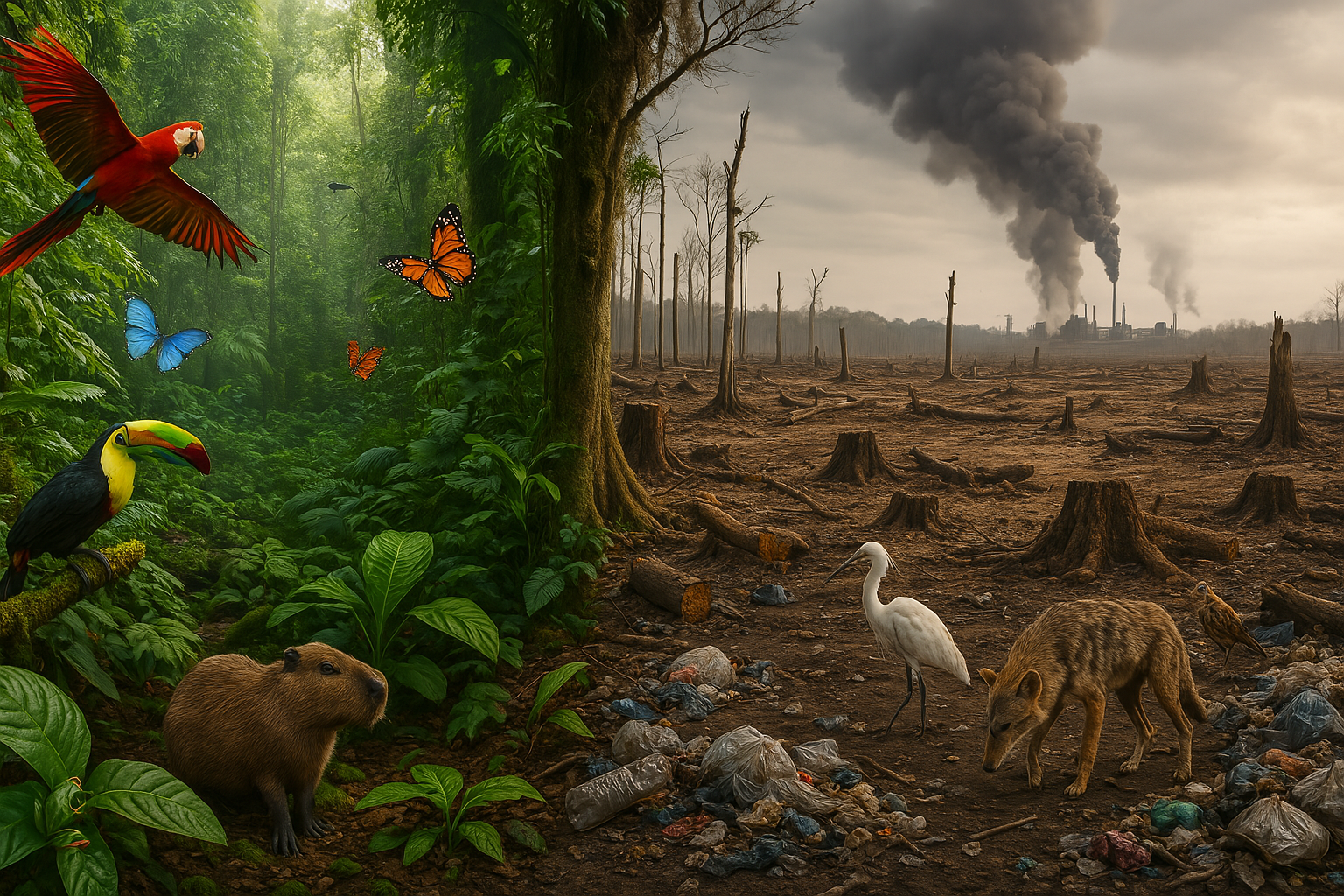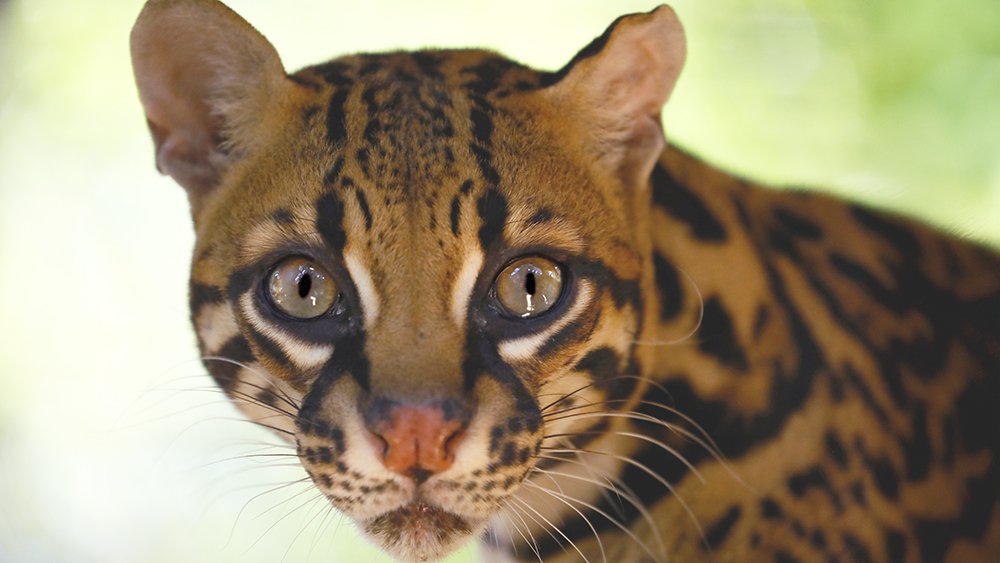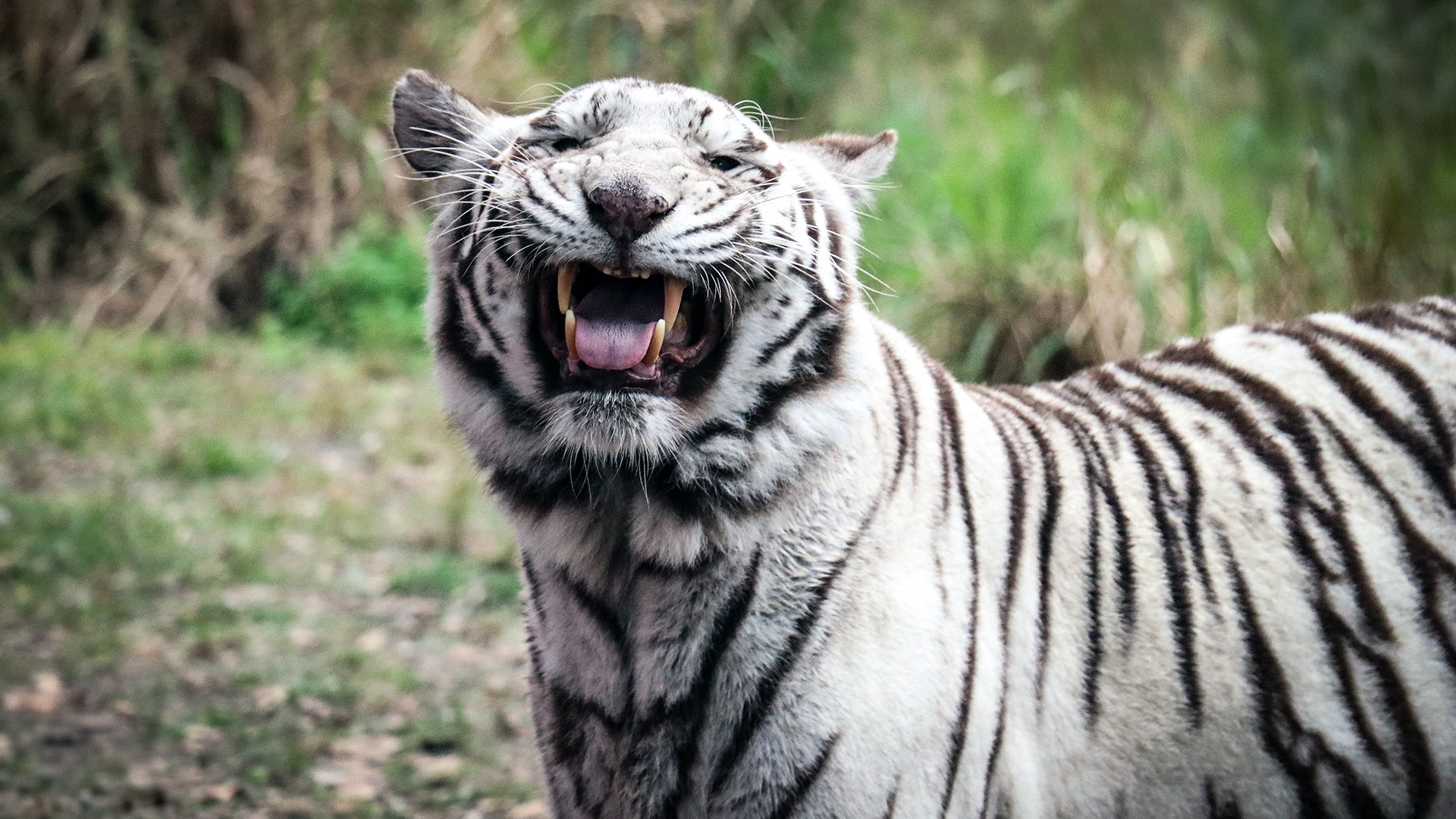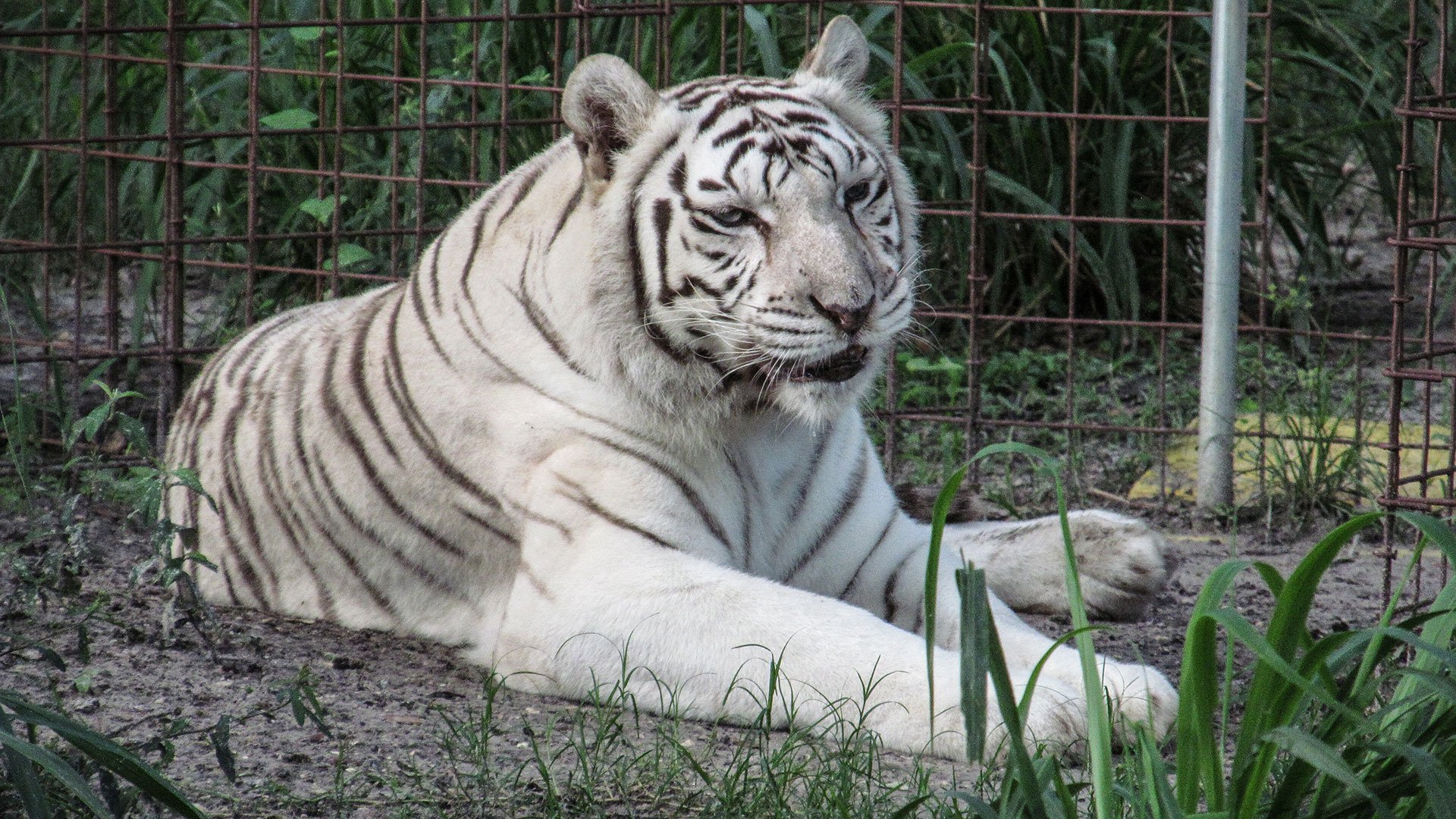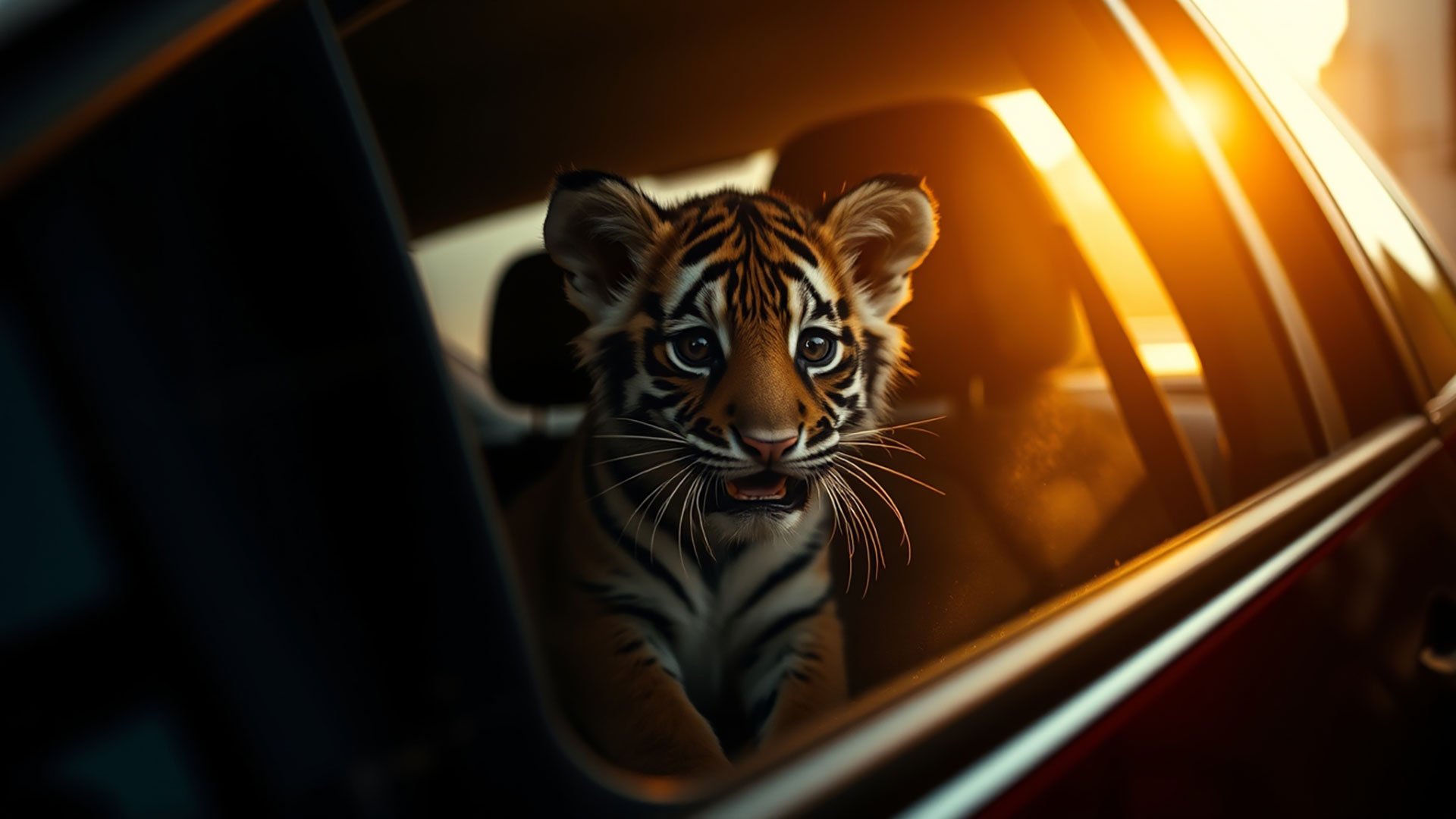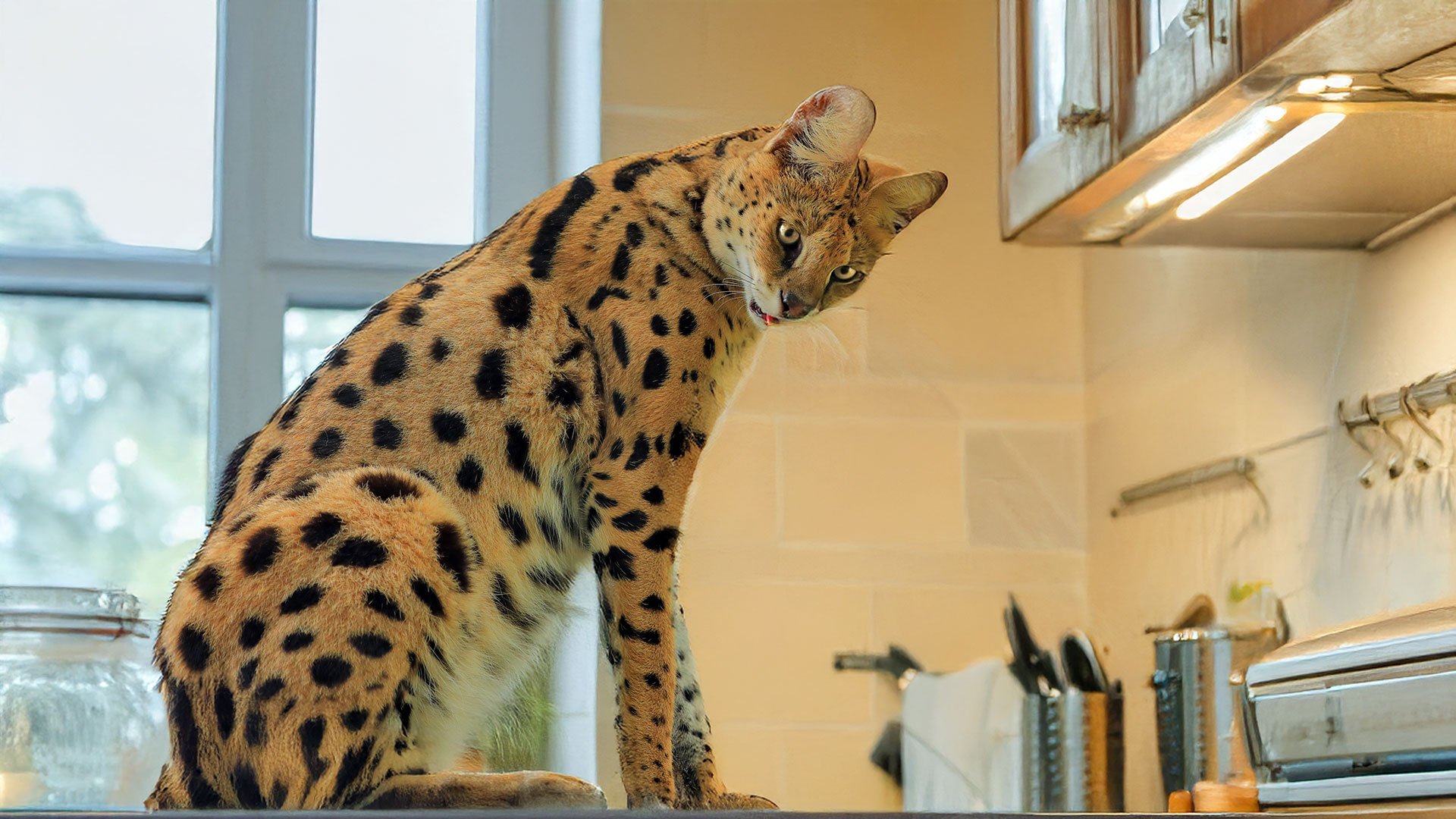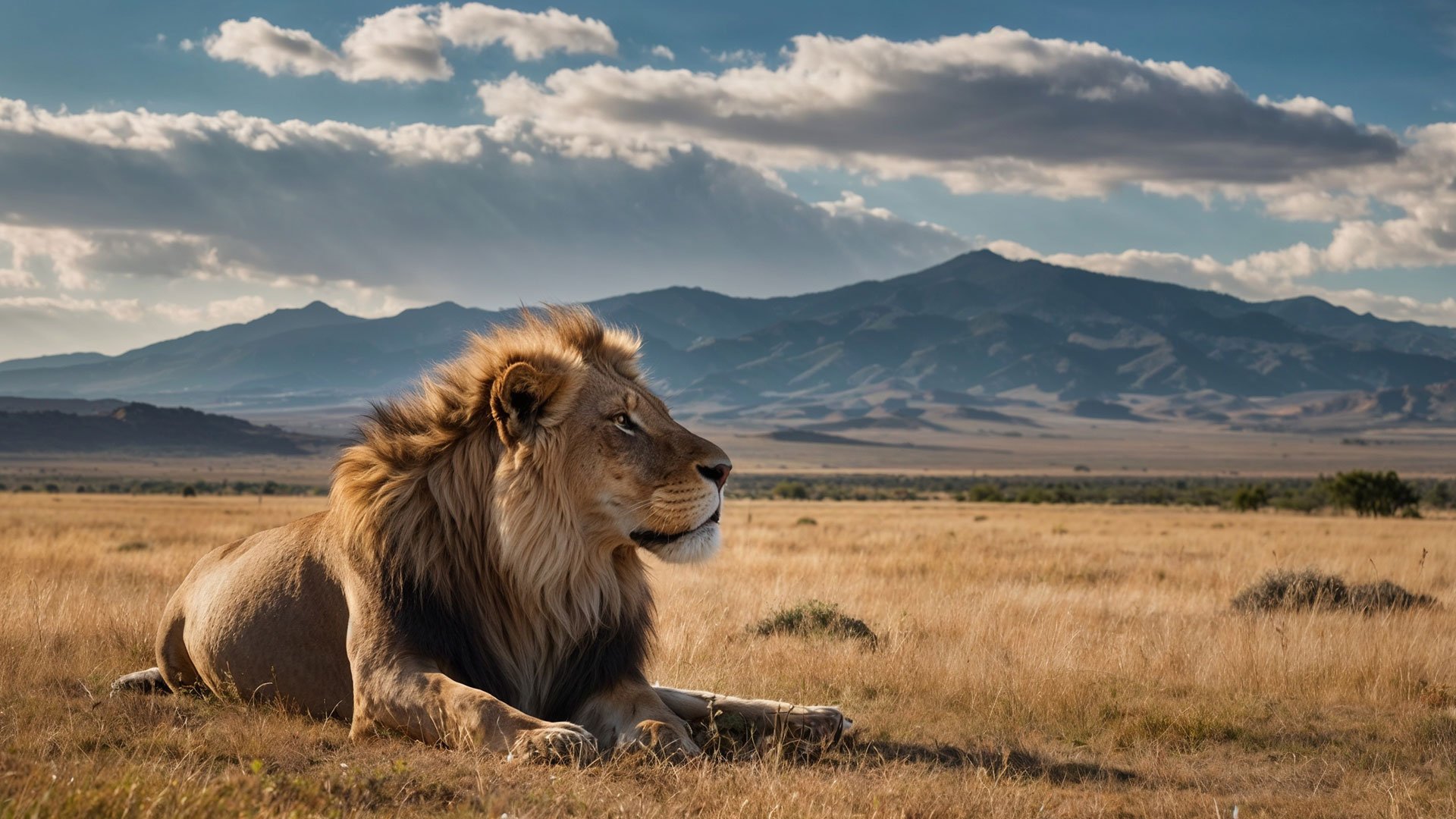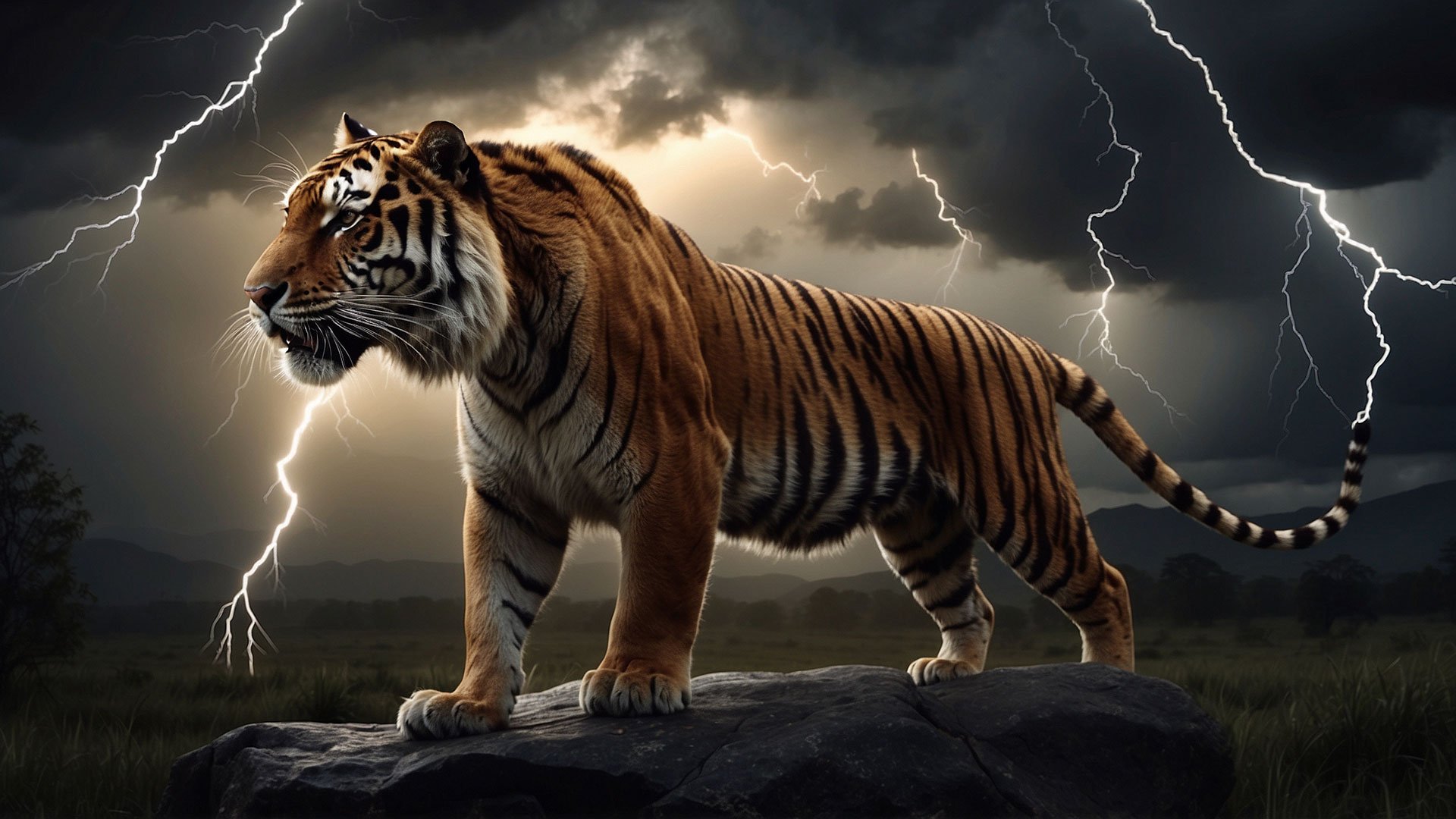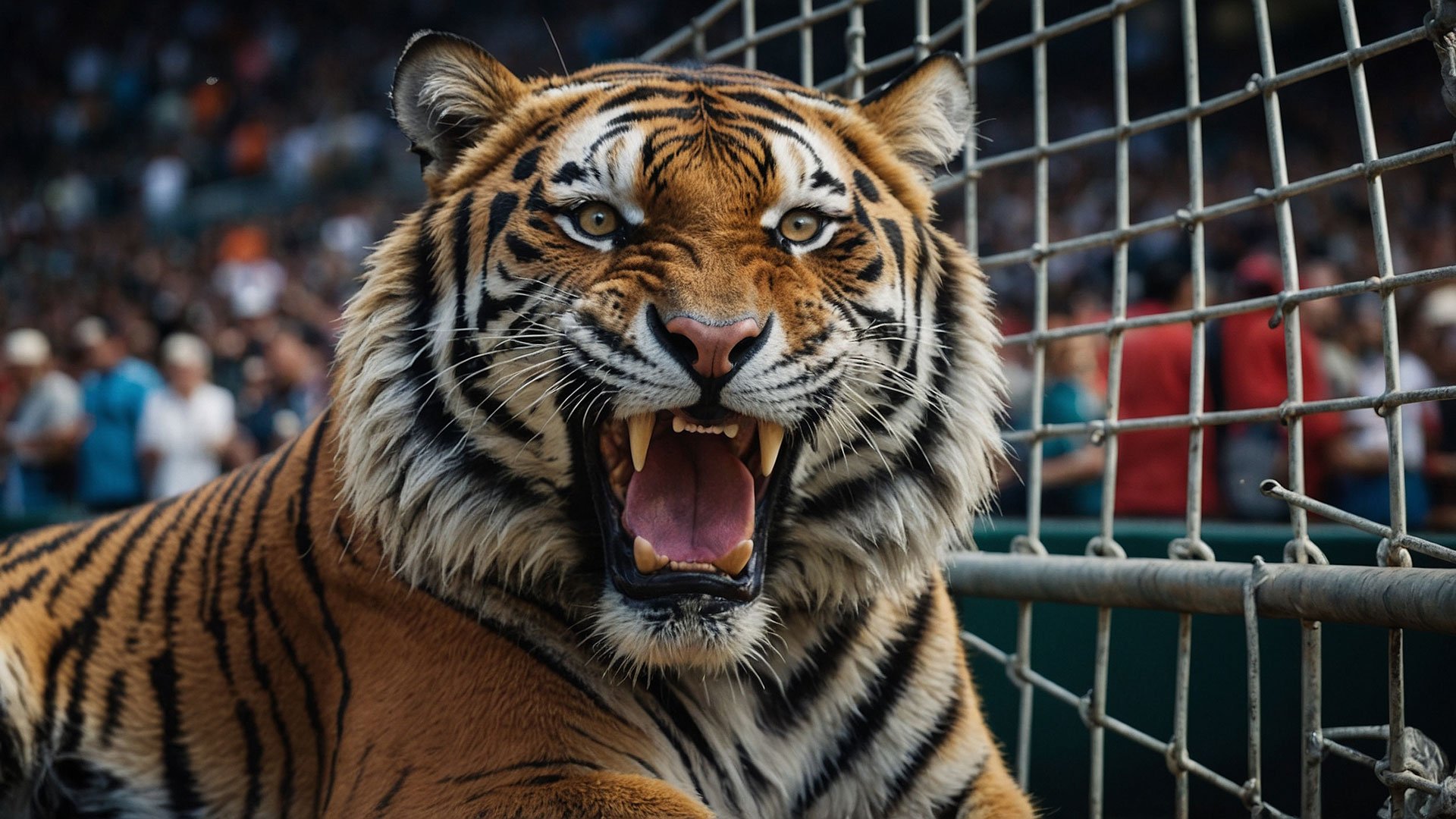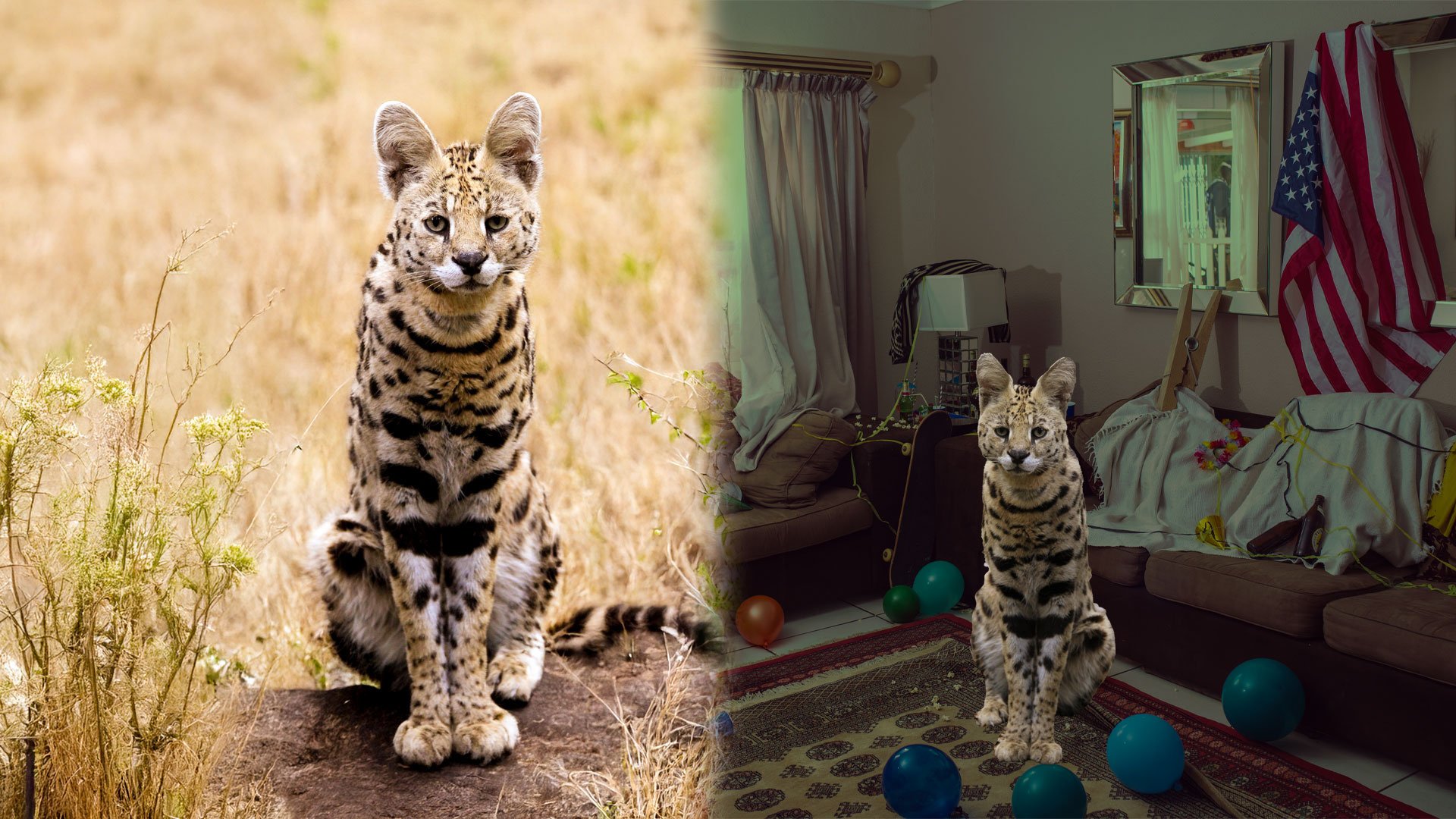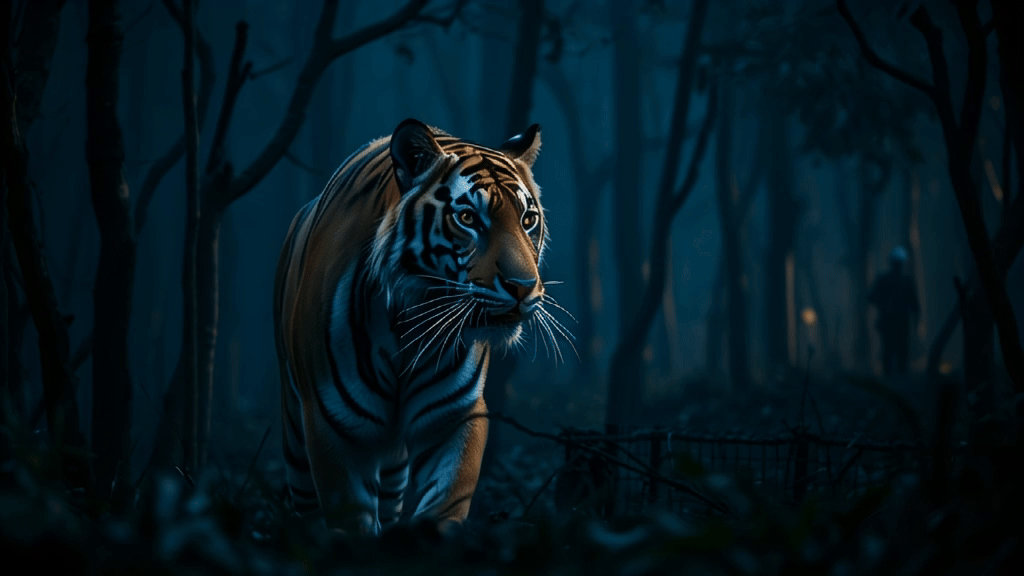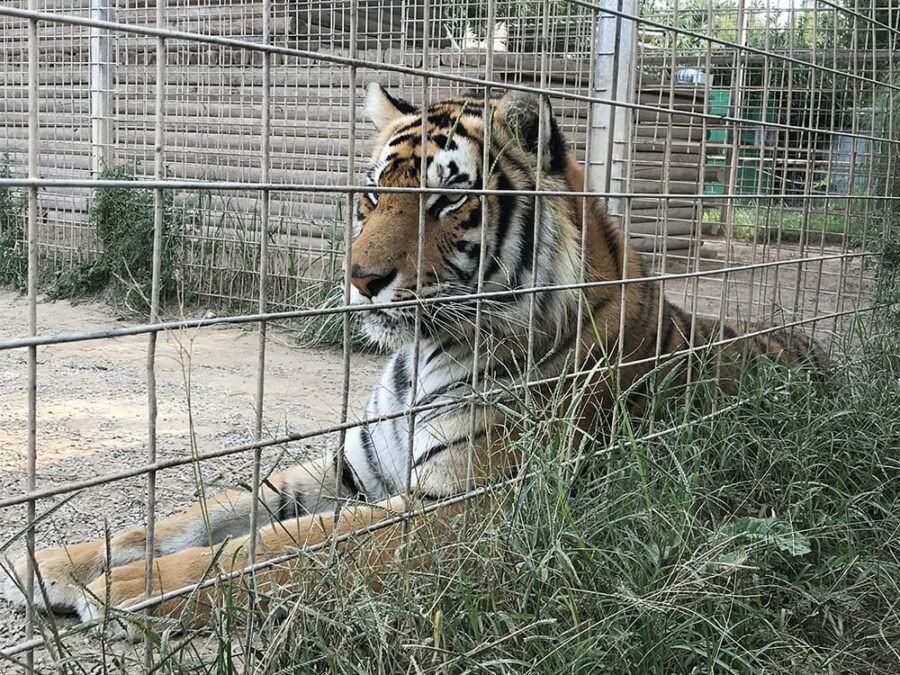Decades Late, But Not Forgotten: The Tigers of Pahrump Finally Freed
Tigers in the desert AI ChatGPT
For decades, the winds that whip across the desert plains of Pahrump, Nevada, carried more than sand. They carried the low, guttural roars of captive tigers—tigers whose voices went unheard, whose suffering persisted far too long in the shadow of failed justice. But now, finally, that chapter has closed. On April 2, 2025, seven tigers were seized from the notorious Karl Mitchell, a self-proclaimed animal trainer with a history steeped in cruelty, defiance, and deception. Back on March 4, 1996 when Wildlife on Easy Street (NKA Big Cat Rescue) received a dying cougar named Darla and a black leopard named Shaquille, the cats arrived brutally beaten. Their skulls had been crushed. Thinking there was some mistake, Don Lewis called his friend Karl Mitchell to report the condition upon their arrival. Karl Mitchell’s response was that in order to train a big cat you have to bash it with a baseball bat. That began the crusade to rescue his remaining animals and end Mitchell’s part in the exotic cat trade.
Today is a day that should have come 29 years earlier.
A Predator Behind the Bars
Karl Mitchell’s name is not new to animal welfare advocates. In fact, he’s infamous. For over 30 years, he used and allegedly abused big cats, peddling them as photo props and entertainment novelties while racking up a rap sheet of animal welfare violations. In 2001, the USDA permanently revoked his license to exhibit animals, citing egregious mistreatment of tigers—leaving them in extreme heat without water, beating them, and denying them veterinary care.
And yet, he kept operating.
Despite the revocation, Mitchell continued to acquire tigers and exhibit them illegally through his outfit, Big Cat Encounters. He brazenly defied federal law, offering $500 photo ops with tiger cubs to unwitting tourists and celebrity clients, including Shaquille O’Neal—a relationship that led to the tragic fate of a tiger named Shaquille.
The Tragedy of Shaquille the Tiger
Shaquille was a tiger cub born at Mitchell’s compound. After being used for photos and play sessions, he was “gifted” to a couple who had neither the resources nor the knowledge to care for a big cat. Like so many tigers bred for profit, Shaquille ended up in a garage, starved of sunlight and stimulation. He died before reaching adulthood, his story just one of the many that spotlight the true cost of cub petting and the exotic pet trade.
Big Cat Rescue tried to intervene—again and again. Their detailed timeline and relentless advocacy traced Karl Mitchell’s every move, alerting authorities, and pressing for justice. But the system failed. Each time, Mitchell slipped through the cracks of enforcement and red tape, exploiting loopholes and flaunting his perceived invincibility.
A Web of Complicity
The failure to stop Mitchell wasn't just a lapse in one agency’s oversight. It was a systemic breakdown.
The USDA revoked his license, but lacked the will to enforce it locally. Nye County officials turned a blind eye for years, even as new complaints and investigations piled up. Meanwhile, the entertainment industry quietly fueled the demand for exotic animals, enabling Mitchell and others like him to remain in business. As recently as 2020, Mitchell was still marketing tiger experiences online—despite court orders and cease-and-desists.
Worse still, he became enmeshed in a bizarre network of shady exotic animal dealers, including connections to Joseph Maldonado-Passage, aka “Joe Exotic.” According to an interview by local media with Karl Mitchell, 4 of the 7 tigers came from Joe Exotic, cementing a tangled web of abuse, trade, and exploitation that stretched across state lines and years of neglect.
Justice, at Last
Then came April 2, 2025.
Nye County Sheriff’s deputies, armed with a warrant and supported by animal welfare professionals, descended on the Pahrump property. Seven tigers were rescued. Each animal bore the physical and emotional scars of their captivity—pacing from stress, malnourished, or neglected—but they were alive.
And this time, Mitchell was arrested…even if it was more likely for his attack on law enforcement than his continued tyrany over the wild cats in his cages.
He faces charges related to the illegal possession and exhibition of wildlife. If convicted, it could finally close the book on his reign of terror over the majestic creatures he held captive for so long.
Why It Took So Long
How could this go on for over 30 years?
Because too many people looked the other way. Because profits from cub petting and photos overshadowed the ethical cost. Because animal protection laws have long been riddled with gaps, and because some counties—like Nye—chose convenience over courage. Law enforcement officers have stated publicly that they were afraid of this gun toting man who claimed tigers were his emotional support animals.
But the tides have turned. The Big Cat Public Safety Act, signed into U.S. law in December 2022, made it illegal to privately own big cats and banned public contact with them. This new law was a landmark victory, championed by Big Cat Rescue and thousands of animal advocates. It didn’t come in time for Shaquille the leopard, nor Shaquille the tiger, nor for the countless other tigers who died in Mitchell’s clutches, but it gave the legal teeth necessary to finally bring him down.
The Tigers’ New Chapter
The seven surviving tigers are now on the path to recovery, their future brighter than ever before. We were thrilled to learn that the tigers confiscated yesterday in Nevada were rescued by our good friends at Turpentine Creek Wildlife Refuge (TCWR), a GFAS accredited sanctuary in Arkansas where all of our former cats reside now. In 2023 when we funded the building of the large enclosures for our tigers at their Freedom Field, TCWR made a very significant commitment of their own funds to build additional enclosures at Freedom Field in anticipation of the need for future rescues. Their foresight has proven to be a great decision. The Nevada cats will now occupy these spacious green enclosures and receive state-of-the-art veterinary care, enrichment, and custom diets. They will live the rest of their lives in peace, far from the cages and cruelty of their past.
Their rescue is a triumph, but also a sobering reminder: We must act sooner, listen harder, and never allow complacency to mask cruelty.
What You Can Do
You can make sure this never happens again.
Support responsible legislation like the Big Cat Public Safety Act and push for similar protections globally.
Donate to organizations like Big Cat Rescue that are fighting every day to protect wild cats in the wild and to end their exploitation in captivity.
Educate others about the truth behind cub petting and roadside zoos.
Be a responsible traveler and consumer. If you can touch a wild animal, it’s a sign of abuse—not conservation.
Call out clueless celebrities. Mitchell relied on the endless parade of clueless celebrities who wanted to pose with tigers to show off and their status gave a cruel industry the cover it needed to thrive.
The day the tigers of Pahrump were freed was decades late. But we can make sure it’s never too late again.
Read more:
